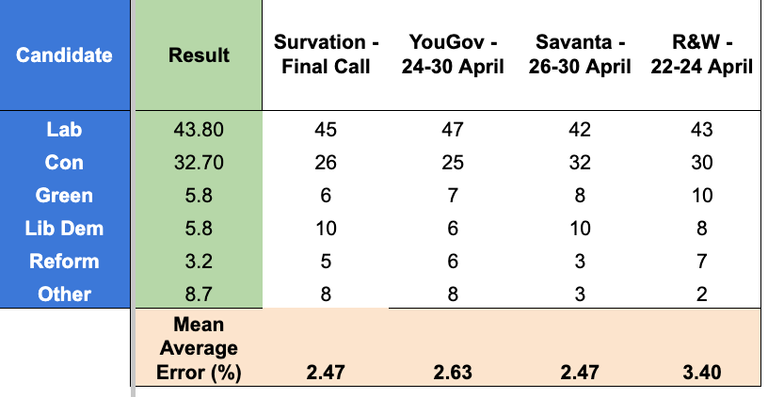The other pollsters missed quite badly. For example, here are the final opinion polls for the London Mayor elections, compared to the actual result:
Look how wildly out YouGov were in predicting a win with a 22 point majority. The win was by 11 points. Their polls have a mean average error of 2.63%, meaning any published number could be 2.63 points higher or lower; but these results were wildly out.
Savanta was spot on though.
Here is the polling for the West Midlands mayor election:
The actual result was as follows:
🌹 Parker (LAB): 37.8% (-1.9)
🌳 Street (CON): 37.5% (-11.2)
🙋 Yakoob (IND): 11.7% (New)
➡️ Williams (RFM): 5.8% (+3.6)
🌍 Harper-Nunes (GRN): 5.2% (-0.6)
🔶 Virk (LDM): 2.0% (-1.5)
1,508 votes in it
None of the pollsters picked up how well the independent candidate would do. Both Reform and the Greens were overstated.
Political journalists in particular tend to treat opinion polls as though they were gospels handed down from Mount Sinai, cast iron guarantees of what will happen.
But opinion polls are only as good as their sample. If your sample is poor, you'll get it wrong. They weren't sampling any of the voters backing independent candidates. But their online panels have probably acquired too many activists from Reform.
There are so many weird things going on under the surface, the general election is hard to call. And that's before we've accounted for the shennanigans in Scotland.

